Treatment cost
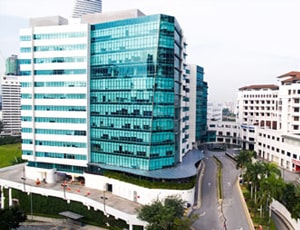
Parkway Pantai located in Kuala Lumpur, Malaysia is accredited by JCI. Also listed below are some of the most prominent infrastructural details:


Sarvodaya Hospital and Research Centre located in Faridabad, India is accredited by NABH, NABL. Also listed below are some of the most prominent infrastructural details:
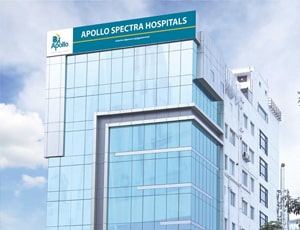
Apollo Spectra Hospitals located in New Delhi, India is accredited by JCI. Also listed below are some of the most prominent infrastructural details:
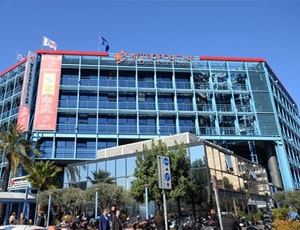
Apart from in-detail treatment procedures available, Metropolitan Hospital located in Pireas, Greece has a wide variety of facilities available for International Patients. Some of the facilities which are provided by them are Accommodation, Airport Transfer, Choice of Meals, Interpreter, SIM, TV inside room. Also listed below are some of the most prominent infrastructural details:
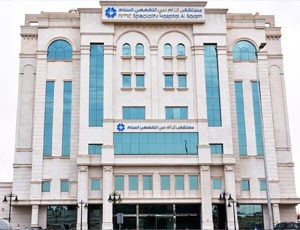
Apart from in-detail treatment procedures available, NMC Specialty Hospital Al Salam located in Riyadh, Saudi Arabia has a wide variety of facilities available for International Patients. Some of the facilities which are provided by them are Accommodation, Airport Transfer, Choice of Meals, Interpreter, SIM, TV inside room. Also listed below are some of the most prominent infrastructural details:
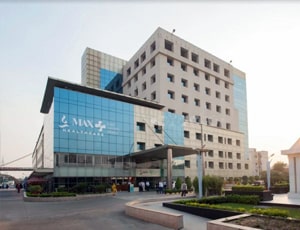
Max Super Specialty Hospital, Vaishali located in Ghaziabad, India is accredited by NABH, NABL. Also listed below are some of the most prominent infrastructural details:
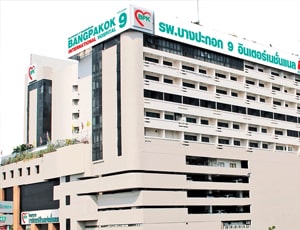
Bangpakok 9 International Hospital located in Bangkok, Thailand is accredited by JCI. Also listed below are some of the most prominent infrastructural details:
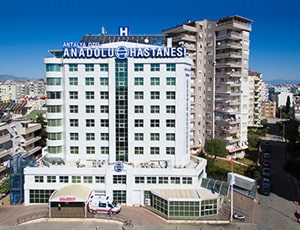
Apart from in-detail treatment procedures available, Antalya Anadolu Hastanesi located in Antalya , Turkey has a wide variety of facilities available for International Patients. Some of the facilities which are provided by them are Accommodation, Airport Transfer, Choice of Meals, Interpreter, TV inside room. Also listed below are some of the most prominent infrastructural details:
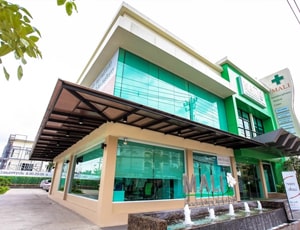
MALI Interdisciplinary Hospital located in Bangkok, Thailand is accredited by JCI. Also listed below are some of the most prominent infrastructural details:
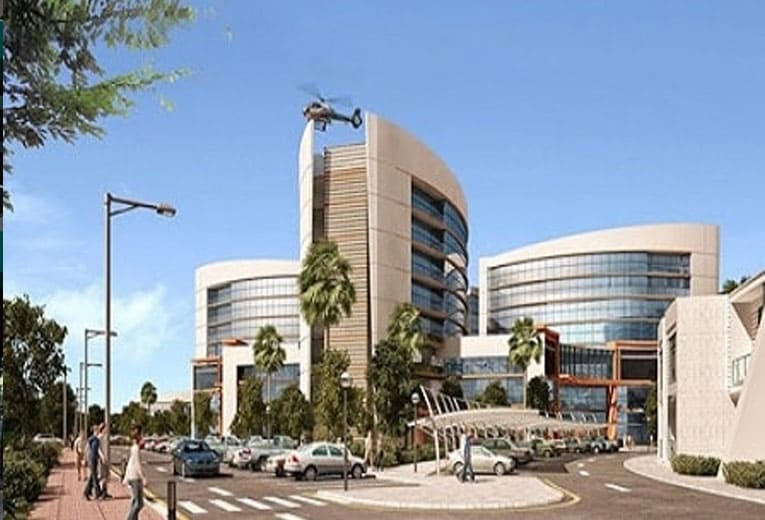
The Hospital owns an International Patient Services Team that is responsible to assist international patients with world-class healthcare, transportation arrangement, accommodation facilities, language interpreters, and much more.
Burjeel Medical City (about 1.2 million square facilities)provides 7-star hospitality to its patients. It has the largest facility space bed among all the private hospitals. The Hospital consists of-
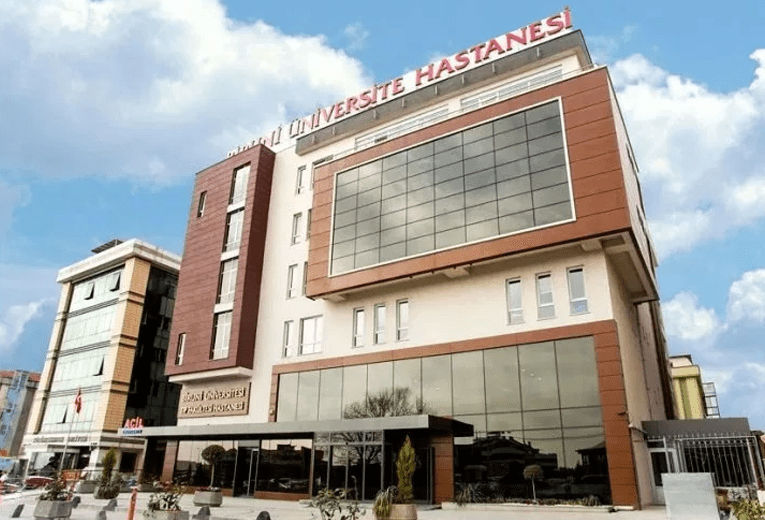
Biruni University Hospital started to serve in 2016. It is a full-fledged multi-specialty healthcare facility, situated in Istanbul, Turkey. The hospital is well-known for its outstanding medical care standards, and it has acquired numerous certificates from international quality organizations. It is a renowned & well-established healthcare facility that provides cutting-edge diagnostic and treatment approaches. They have a team of highly skilled doctors and surgeons on call 24 hours a day, seven days a week to deliver the best medical care possible.
The hospital has various medical departments such as Cardiology, Neurology, Urology, Rheumatology, Pediatrics, General Medicine and Surgery, Gastroenterology, etc. Popular treatments conducted at the hospital are Pediatric Neurology, Cardiac Stenting, Balloon Angioplasty, Bypass surgery, plastic surgery procedures like Hair transplant, & Botox injections, and many more. The hospital is known for its most valuable service i.e. service to human health. Hospital management & professionals define their service concept with the significance attached to the belief. The management is concerned with both medical statistics and, above all, the satisfaction of the patients. Patients from other countries are well looked after. The hospital offers international patients a relaxing and secure environment in terms of psychology, comfort, and health.
The hospital's primary purpose is to provide world-class patient-centered health care through our highly responsible team who can produce information and use it appropriately. With its university-based scientific infrastructure and competent health care, the hospital's management has long-term plans for it, with a desire to be an innovative and leading health institution that is regarded as a reference in the country and around the world. Several value-added services and quality policies are available at the facility. To mention a few, the hospital is open to development and technology, continuously measuring and improving, training qualified health professionals, caring about patient and employee satisfaction, and becoming mobilized to bring an environment of reliable diagnosis, treatment, and care to the majority of the society.
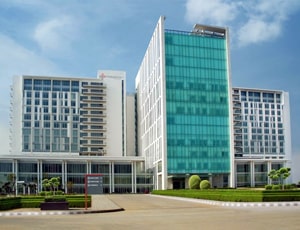
Medanta - The Medicity located in Gurugram, India is accredited by JCI, NABH. Also listed below are some of the most prominent infrastructural details:
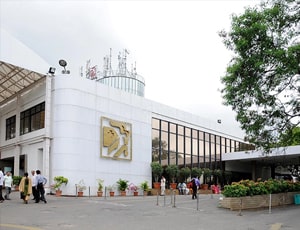
Apollo Hospitals located in Hyderabad, India is accredited by JCI, NABH. Also listed below are some of the most prominent infrastructural details:
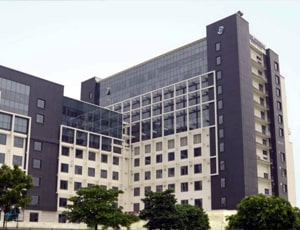
Venkateshwar Hospital located in New Delhi, India is accredited by NABH. Also listed below are some of the most prominent infrastructural details:
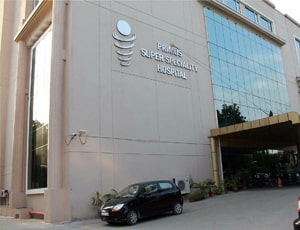
Primus Super Speciality Hospital located in New Delhi, India is accredited by NABH. Also listed below are some of the most prominent infrastructural details:
What is macula and macular degeneration?
Macula is the yellowish oval area surrounding the retina of the eye, and it is the finest part where images are received. Degeneration of the macula occurs mostly at the age of 60, and hence, it is termed as age-related macular degeneration (AMD). Patients experiencing macular degeneration may not experience total blindness, but they may lose most of their central vision. The symptoms observed in this condition are the need for brighter light while reading, difficulty recognizing faces, decreased intensity of colors, etc.
Macular degeneration is mainly associated with aging. However, other factors such as smoking, hereditary, sedentary life style also cause macular degeneration.
What are the types of macular degeneration?
There are two types of macular degeneration. Each have different macular degeneration symptoms and are diagnosed with the help og macular degeneration test.
Dry AMD- It is the most common form of eye disease, and it is the early-intermediate stage of macular degeneration. The patients may experience slight vision changes; however, they may not notice the symptoms.
Wet AMD- It is the most severe form of macular degeneration that leads to complete vision loss. This occurs due to abnormal growth of blood vessels beneath retina and macula which leads to the destruction of healthy cells. It is proved that nearly 10% of people with macular degeneration have this type of AMD. If you have Wet AMD, macular degeneration symptoms may include seeing wavy lines, or dark spots throughout the day.
Juvenile MD- In some cases, macular degeneration can also affect young people, a condition called as juvenile macular degeneration. Scarring of macula is seen in such patients.
There is no special macular degeration treatment for dry AMD as it does not have any effect on side vision and it does not cause total blindness. But the progression of the disease can be prevented by a healthy lifestyle. It is proved that taking specific high-dose formulation of antioxidants and zinc decreases the risk of advanced AMD and the vision loss.
But in some cases, when the patients have advanced dry macular degeneration, Surgery can be done to implant a telescopic lens in one eye. This helps in improving both distance and close-up vision.
Some macular degeneration treatment options help slow down vision loss associated with wet AMD. These include:
It is used to destroy abnormal blood vessels within the retina. A high beam of light is directed onto the blood vessels to destroy them. This treatment is effective in slowing vision loss in patients who have developed new blood vessels away from the cornea.
injections are prescribed to prevent abnormal blood vessels. Over expression of VEGF can cause vascular disease in the retina of the eye; which is inhibited by the anti- VEGF drugs that control or slow those diseases. Drugs which are classified as anti-VEGF drugs include aflibercept, bevacizumab, and ranibizumab.
This involves laser treatment for selected areas of the retina. Your physician administers a drug called verteporfin into the vein of your arm. The drug travels the blood vessels and is absorbed by new blood vessels. Then, a low-power laser light is applied to the newly grown blood vessels; which activates the drug present in the blood vessels.
Once activated, the drug slows the growth of new blood vessels and slows the rate of vision loss.
The physician will prescribe eye drops to keep your eyes moisturized after the macular degeneration treatment. This also helps in preventing the infection after surgery. It takes nearly three to six weeks to heal after the AMD treatment.
Laser therapy damages some of the nerve cells in the macula which may cause vision loss.
Ask your healthcare adviser for the best multiple options and choose the one that meets your expectations
Different hospitals have different pricing policy when it comes to the cost of Macular Degeneration Surgery in Malaysia. Some of the best hospitals for Macular Degeneration Surgery offer a comprehensive package that covers the end-to-end expenses related to investigations and treatment of the patient. The Macular Degeneration Surgery procedure in Malaysia includes the fees of the surgeon, hospitalization and anesthesia as well. A prolonged hospital stay due to delayed recovery, new diagnosis and complications after surgery may increase the cost of Macular Degeneration Surgery in Malaysia.
There are many hospitals across the country that offer Macular Degeneration Surgery to international patients. Some of the best hospitals for Macular Degeneration Surgery in Malaysia include the following:
The recovery of the patient many vary, depending on several factors. However, on an average, patient is supposed to stay for about 14 days in the country after discharge. This period is important to conduct all the follow-up tests to ensure that the surgery was successful and the patient can go back to the home country.
There are certain expenses additional to the Macular Degeneration Surgery cost that the patient may have to pay for. These are the chanrges for daily meals and hotel stay outside the hospital. The extra charges may start from USD 50 per person.
The following are some of the best cities for Macular Degeneration Surgery in Malaysia:
The patient has to spend about 1 days in the hospital after Macular Degeneration Surgery for proper recovery and to get clearance for discharge. The doctors team review the patient's recovery during this time with the help of blood tests and imaging scans. Once they feel that everything is on track, the patient is discharged.
There are more than 1 hospitals that offer Macular Degeneration Surgery in Malaysia. The above mentioned clinics have the required infrastructure and a dedicated unit where patients can be treated. These hospitals comply with all the rules and regulations as dictated by the regulatory bodies and medical association in Malaysia
Some of the most sought after medical specialists for Macular Degeneration Surgery in Malaysia are: